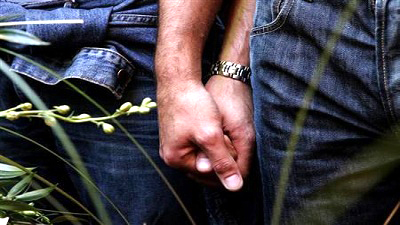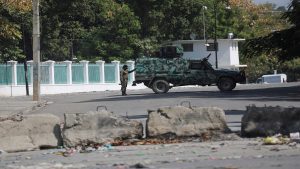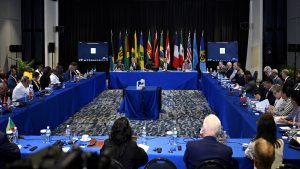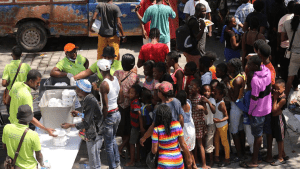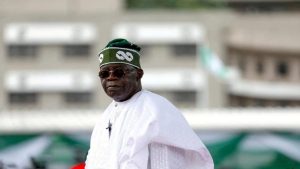The 16 Days of Activism against Women and Children abuse campaign raises one particular question for me: ‘What is the responsibility of religious bodies/organisations and traditional entities in combating gender-based violence and hate crimes?’
I will attempt to answer this question from my own experience as a Christian gay man.
You know, I miss going to church, more especially the worship segment. That section was very special to me. We would sing songs in praise and worship. It was the only time I felt very close to God.
When I stopped going to church that was taken away from me. I stopped because I was tired of the constant condemnation and ridicule.
Almost every Sunday you would hear permeating from the pulpit jokes that disapproved of homosexuality.
Just before he could read a scripture, the pastor would say: “Hug a person to your right and tell them you love them. If you are men you can’t hug. Find a sister somewhere. We do not promote gays in this church,” which would be followed by a huge bust of laughter.
From this background, one would be forgiven to mistake the Lesbian, Gay, Bisexual, Transgender, Intersex, Queer (LGBTIQ+) community for a God-forsaken lot that understands nothing issues of faith.
But perhaps it was when I attended the 2017 Joburg Pride After Party in Newtown, I realised how spiritually aware the LGBTIQ+ people were. This, despite the ridicules from churches.
After a series of traditional worship hymns, radio and television personality Buji Bikwa took to the stage.
He said, “The reason we are playing these songs is the fact that in most cases, us, LGBTIQ+ people, are denied access to God merely because of our sexuality.”
In 2016, it was reported that Reverend Canon Mpho Tutu-Van Furth had revealed that her licence to preach had been revoked because she had married a woman. She’s since decided to quit.
However, the church is not the only body that’s critical towards the LGBTIQ+.
Traditional entities can show discontentment too.
Back home, my family is still struggling to come to terms with my sexuality. My aunt has even gone as far as telling me that at the recent village imbizo, the induna warned against the existence of gays in the village.
She says the induna said, “if you want to marry another man you are not welcomed in the village.”
This reminded me of the KwaZulu-Natal lesbian couple who were living in fear after a local induna chased them out of the community, accusing them of spreading the “spirit of homosexuality.”
As a person who values spirituality, culture and tradition, I feel the church and traditional entities are letting down LGBTIQ+ people by not speaking out about the abuse they suffer. This is because there are many who abuse LGBTIQ+ people in the name of God or the so-called ‘African Culture’.
2017 marks the 19th anniversary of the 16 Days of Activism for No Violence Against Women and Children campaign in South Africa taking place from 25 November to 10 December.
Government and various gender rights organisations have been hard at work on a month-long campaign in an effort to generate an increased awareness to the negative impact of violence on women and children.
Whether these efforts are working is a topic for another day. However, it is known that women and children aren’t the sole recipients of violence. The LGBTIQ+ people are victims too.
Results from a 2016 Online study by the ‘Love Not Hate Campaign’ points out that 41% of those surveyed knew of someone who had been murdered due to their sexual orientation.
Therefore, it would be a dreadful exercise for one to attempt discussing gender-based violence (GBV) during 16 Days Campaign while disregarding violence against the LGBTIQ+.
The Progressive Prude Report claims that 450,000 South Africans have admitted to physically harming women ‘who dress and behave like men in public’.
In another study by ‘Love Not Hate’, 14% of Gauteng residents believe violence against the LGBTIQ people is justified.
One wonders where this kind of attitude emanates from. Especially, after recognising that section 9 of the South African constitution prohibits anyone from discriminating against or violating people merely on their sexual orientation.
A recent study by The Other Foundation blames christian churches for the current homophobic attitudes.
The report claims that “the greatest obstacle to the full acceptance of LGBTIQ people in southern Africa is religiously sanctioned homophobia.”
Following what transpired at the Soweto Grace Bible Church earlier in 2017, when Somizi Mhlongo stormed out of a sermon following Pastor Dag Heward-Mills’ attack on homosexuality, one would encounter a lot of difficulty in trying to go against the report.
Spokesperson for the Commission for Gender Equality Jabu Baloyi agrees.
He says, “The church preaches hate at times. In South Africa, they disregard the constitution. They harbour resentment and want to use the podium or altar to unleash their homophobic tendency.”
According to Bishop Malusi Mpumlwana, Acting General Secretary of the South African Council of Churches (SACC), churches appear to have no option, but to follow what’s in the bible.
“Many churches take the view – with biblical justification of texts – that the homosexual life condition is nothing but sinful conduct. They will not accommodate the view that human beings may have diverse sexual orientations by nature. That is our reality, and it explains why we have the [discrimination and violence on the LGBTIQ+]”.
Whilst Baloyi trusts that educating people about LGBTIQ+ issues is key, he also believes that everything starts at home.
He says, “Parents must not dissuade their children from being lesbians and gays. In that way, society can better understand intricacies around being an LGBTIQ+.”
On the other hand, Mpumlwana believes that “churches are unlikely to all teach on the acceptability of the LGBTIQ community as a natural phenomenon. But all churches are required under Christ’s command of love to defend and protect all people.”
Paying attention to what’s been said in this text, it is clear that activists and government’s mission to end discrimination and violence against the LGBTIQ+ must strongly involve traditional and religious entities.
According to the 2016 General Household Survey, over 80% of South Africans are Christians whilst African Traditional Religion boast over 5% of the share in affiliation. This means that once these religious bodies are involved in the efforts to campaign the fight against violence on the LGBTIQ+, society is likely to swiftly respond with positivity. This owes everything to the amount of influence religion and traditional bodies enjoy in the land.
Once that’s done, it’s possible that one might rethink his decision and go back to church to fellowship with others. This will be a testimony that just because one is gay or lesbian, it doesn’t necessarily mean they lack the zeal to long for God in their lives. It also does not mean they cannot fully embrace their African culture and traditions for that matter.


